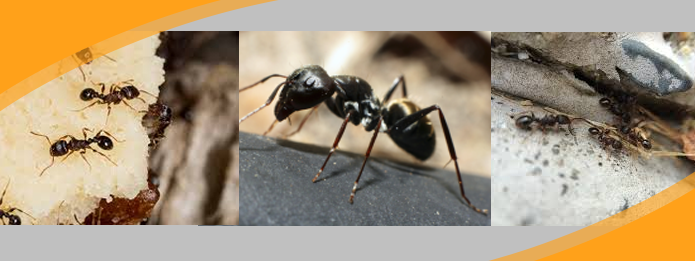How To Protect Your Home From Pavement Ants

When the warm weather arrives, you and your family probably want to enjoy your patio for relaxing, reading or simply spending time together, but spring often brings uninvited visitors as well. Pavement ants and other ant species in general are a common sight on sidewalks and patios, where they might eventually invade your home as well. These nuisance insects can be difficult to eradicate, but a few protective measures, along with some help from residential pest control in Kitchener, can keep them at bay.
Pavement Ants Came From Europe
Pavement ants are so common across North American that you might believe they are native to the continent. However, these ants have their origins in Europe and travelled to America, Canada and Mexico on merchant ships in the 18th century. Some ships carried soil to distribute additional weight in their holds, and the ants came along with them.
Once pavement ants gained a foothold on the continent, they spread rapidly and can now be found in a variety of locations where they dig nests in pavement cracks and along sidewalks, hence their name. They have little trouble invading human homes as well, especially if they smell food. Because pavement ants are small, they rarely attack humans, but they are capable of biting or stinging to defend themselves.
They Eat a Variety of Food
Pavement ants are likely to move from your yard or patio and into your home in search of food. They are omnivorous and eat a wide variety of foods, including most types of meat, pet food, food grease and sweets. Their preference for sweet foods has given them the nickname “sugar ants.”
Once a worker finds food, the ants will create a uniform marching squad and gather up all they can. They might come in under a loose door threshold, from under your kitchen sink, or a hole in the foundation. Once inside, they can be difficult to eliminate completely and might infest your pantry and cupboards.
Pavement Ants Can Be Difficult To Exterminate
Because pavement ants can be insistent and repeatedly invade your house despite your efforts with bug spray and ant baits, calling for residential pest control in Kitchener may be a wise choice. Our team can treat your property and help you decide what type of customized extermination your home needs.
Another advantage of using our residential pest control services is to target pavement ants at their source. Most sprays and treatments found at your local home and garden centre may not reach the ants’ nest and could harm your pets. If the ants are living in your walls or under your floor, these treatments might not be useful. Even foggers and other umbrella treatments might not reach the ants nesting there.
Steps To Take After Treatment
Once we treat your home, there are a few steps you can take to prevent pavement ants from returning. If you have large trees in your backyard, trim back the branches so ants cannot use them to gain access to your home. Use caulk or insulation foam to seal cracks and holes in your patio’s pavement and ensure your doors and windows close tightly. Check door and window screens, as even tiny holes can provide pavement ants with a way into your home.
Pavement ants are less likely to invade your home when there is no food source. Discourage your kids from leaving food and open pop cans in their bedrooms and do not leave food on your kitchen counter. Even unswept crumbs can attract these insects, so vacuuming more often in warm weather can help. Seal your pet’s food in containers with lids that can be screwed down firmly and empty your trash cans frequently.
Pavements ants can take up residence in every room of your home and help themselves to your food. Our control measures for seasonal pests can keep these insects off your property, so contact us today for assistance.